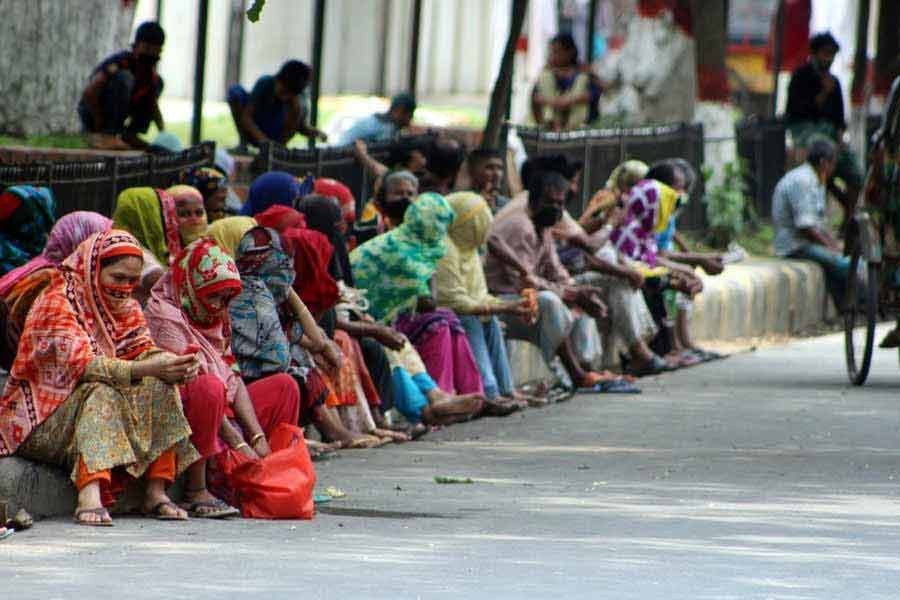
Published :
Updated :

Poverty, food insecurity, and malnourishment are significant and persistent problems in Bangladesh, with millions of low- and middle-income households across the country affected by some degree of hunger or malnourishment. In fact it would not be an exaggeration to say that ensuring food security for all citizens is the most pressing challenge facing Bangladesh amidst a growing population, economic slowdown and stubbornly high inflation. Against this backdrop, the report that Bangladesh has slipped three notches in the 2024 Global Hunger Index is worrisome. Bangladesh is now ranked 84th out of 125 countries, alongside nations with a 'moderate level of hunger.'
According to the global report, jointly published by Ireland-based Concern Worldwide and Germany-based Welthungerhilfe, some 11.9 per cent of Bangladesh's population is undernourished, meaning that they do not get enough food to meet their daily calorie needs. The most unfortunate victims of poverty are the innocent and vulnerable children. As the report shows, nearly one-fourth or 23.6 per cent of Bangladeshi children below five are stunted or too short for their age due to chronic malnutrition. Besides, a staggering 11 per cent of children under five are described as wasted, indicating that they have a low weight for their height, with 2.9 per cent of such children dying before reaching their fifth birthday. The World Food Programme estimates that 24 per cent of the country's population and 46 per cent of impoverished households face food insecurity. The statistics may not fully reflect the situation on the ground, but they are staggering enough to warrant immediate action.
Food insecurity is not about the scarcity of food. In Bangladesh, the greatest obstacles to food security stem from the unaffordability caused by widespread poverty and limited access to food due to inflation and unstable income sources. Prolonged economic stagnation, driven by both external shocks and internal political turmoil, along with frequent natural disasters, has worsened the situation. The double-digit food inflation over the past three years has had a profound impact, leaving more households food-insecure. This highlights that hunger is not an inevitable outcome; it is largely the result of human actions, shaped by a combination of political conflict, economic disruptions, climate extremes, poverty, and inequality. For a country like Bangladesh, the fight against hunger is complex, with no quick solutions. It requires a coordinated response from the government, non-governmental organisations, and the global community to eradicate poverty and address inequality.
No one expects immediate change, but a determined step to eradicate poverty and hunger must be taken now. The interim government has a unique opportunity to begin adjusting policies towards more pro-poor, inclusive growth. There is also a need for increasing allocation and widening the coverage of social safety net programmes. Revamping the agricultural marketing system to ensure fair prices for farmers and growers will also help alleviate poverty in rural areas. Moreover, implementing school feeding programmes for underprivileged children can help combat malnutrition among poor children. There are some other hidden factors in poverty alleviation which are not discussed much. The social climate of a region or family matters, and families which follow liberal customs, adopt contraception and allow women to work outdoors will find it easier to free themselves from grinding poverty. The problem of poverty is as much economic as it is social.


 For all latest news, follow The Financial Express Google News channel.
For all latest news, follow The Financial Express Google News channel.